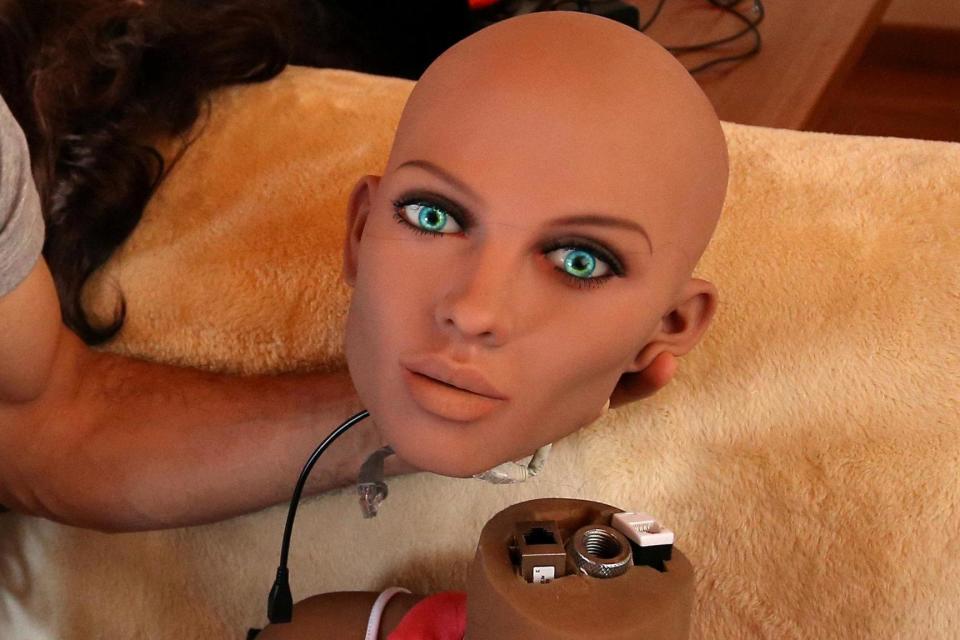Major warnings issued over the dangers of sex robots

Companies around the world are racing to create talking ‘sex robots’ – artificially intelligent love dolls in both male and female forms, costing up to £10,000.
But a new report warns that the devices could actually increase exploitation of women – and worsen loneliness for their users.
Some experts have welcomed the talking sex dolls, suggesting they could help sex offenders and even curb STIs.
But Professor Chantal Cox-George, from St George’s University Hospitals NHS Foundation Trust, and Professor Susan Bewley, from King’s College London, say there’s no evidence of these supposed positive effects.
MOST POPULAR TODAY ON YAHOO
Terrifying footage shows police chase drug criminals who sped at 80mph in a 30mph zone
The gratest! Death-defying competitors battle to become Cheese Rolling champion 2018
Learner drivers are now allowed on motorways: Everything you need to know
They write in the journal BMJ Sexual & Reproductive Health, ‘It is speculative whether the development of a sexbot marketplace will lead to lesser risk of violence and infections, or drive further exploitation of human sex workers.
‘It remains unproven that intimacy ‘needs’ will be satisfied: there could be worsened distress. While a human may genuinely desire a sexbot, reciprocation can only be artificially mimicked.’

‘Some people envision a future with no sex trafficking, sex tourism or sex trade. One hypothetical future red-light district has been described where the spread of sexually transmitted infections is prevented by providing robotic prostitutes made of bacteria-resistant fibre, flushed for human fluids after use. This well-intentioned scenario is optimistic.
In fact, use of the dolls could drive users on to exploit humans, the researchers warn.
The write, ‘It is speculative whether the development of a sexbot marketplace will lead to lesser risk of violence and infections, or drive further exploitation of human sexworkers.’
Noel Sharkey of the Foundation of Responsible Robotics previously warned that the machines could ‘change humanity completely’.
In a new documentary, Sex Robots and Us, Sharkey says, ‘We’re just doing all this stuff with machines because we can, and not really thinking how this could change humanity completely.
‘Some people have suggested that sex robots create an attitude of ‘too-easy’ sex which is always available.
‘This could take meaning out of our lives and turn us into zombies.’
Last year, a scientific study found that a quarter of millennials admitted they would be happy having a sexual relationship with a robot.
In a study conducted by Paris-based Havas, 27% of 18-34 year olds would form a relationship with a robot.

 Yahoo News
Yahoo News 
